Confronting Columbus: How Mexico is planning to combat its Dos A Cero past

The latest installment of the USA-Mexico rivalry takes place Friday night, when the CONCACAF foes open the World Cup qualifying Hexagonal against one another in Columbus. Stream the match live via FOX Sports GO at 7:45 p.m. ET.
It’s possible that Mexico’s most significant call-up ahead of Friday’s World Cup qualifier against the U.S. isn’t on coach Juan Carlos Osorio’s roster. This call-up won’t be in uniform in Columbus. He won’t break a sweat or kick a ball. Imanol Ibarrondo’s contribution is expected to be intangible. It’ll have to be. He’s Spanish, not Mexican, and he’s 49 years old.
Ibarrondo once played professionally. He’s now an author, sports psychologist, consultant and motivational speaker who tries to help athletes and coaches bring out their best. Columbus is a place where Mexico certainly hasn’t been at its best. Since 2001, through four World Cup qualifiers, Mapfre Stadium somehow has exposed every fault and frailty in El Tri. The score is always the same—dos a cero—and the burden and legend seem to grow with each defeat. Ibarrondo already has spent time with Mexican youth teams. He was introduced to the senior players this fall and will be them this week in Columbus.
Dos a Cero: The USA-Mexico rivalry re-told
At this point, Mexico is willing to try anything to rid itself of this one, consistent stain on its record against its rival. El Tri beat the U.S. in the 2011 CONCACAF Gold Cup final and last year’s Confederations Cup playoff at the Rose Bowl. The players know it’s not an issue of talent. The question facing them is whether Columbus represents a curse, a coincidence or something in between.
“Coaching is for those who want to keep improving—for those who know they can give more of themselves,” Ibarrondo told Spain’s El País. “They want to be in the now, in the present moment, and enjoy it fully. It’s for those who do not want to play with fear of failure or what people say, of losing, of shame. It’s for those who want to rely much more on their capabilities.”
Speaking to reporters in Columbus, Mexico winger Jürgen Damm said, “[Osorio] has asked us to get rid of that thought that we always come here and lose 2-0. We have to change that mentality. That’s why [Ibarrondo] has come to help us,” according to ESPN. “I think the Mexico national team has all the footballing and human potential to overcome this situation.”
Mexico does have one hump higher than Columbus it needs to climb over. Pável Pardo, the legendary El Tri midfielder, rattles them off.
“We remember World Cup 1994, 1998 and then 2002, and then 2006, and then 2010, and then the last one in 2014, where we lost again to Holland,” he told SI.com, lamenting each and every loss in the tournament’s round of 16. “If we want to change the history for the national team of Mexico, if we want to take that step, we have to do different things. The psychologist is a good idea. For me, the most important thing is the mentality. Everything you do in life is about mentality. You have a good mentality, a strong mentality, and then you have the possibility to win.”
How did Columbus become the unofficial home of USA vs. Mexico?
Pardo, 40, retired at the end of the 2012 season—his second with the Chicago Fire. He’s more well known, of course, for his 148 caps, his years with Club América and his success in Germany, where he won a Bundesliga title with VfB Stuttgart back when there were far fewer Mexicans making an impact in Europe. Pardo now lives in Miami and in addition to occasional promotional work with the Mexican federation, he’s involved in a couple of local businesses that offer athletic and recreational space, including a field complex housed on the roof of a building adjacent to the Miami River.
Pardo lost twice in Columbus. That first defeat, in 2001, came as a shock. It was freezing—the Mexicans famously refused to leave the locker room to warm up—and there were far fewer green jerseys in the crowd than they were used to. From that day forward, the “mentality” Pardo referenced had changed. He believes success starts with a picture. When El Tri gets to the round of 16 at a World Cup, it can picture only failure. Its image of Columbus is similar. Perhaps learning to alter one will lead to changing the other, he said.
“When you play in a place it’s like when you play as a kid in your neighborhood and you play [against] another kid from another neighborhood,” Pardo explained. “When you play in your neighborhood, in your home, you have more confidence because the mind works like that. It’s a repetition in your mind. What is the last image, the last picture in your head? ‘Oh, we win here and that’s the last image, so we win.’ So the most important thing is the mentality. These things I learned more in Germany because I think for me, that country, the players at the top have the mentality and they start winning games.”
GALLERY: USA vs. Mexico rivalry through the years
USA vs. Mexico Soccer
November 11, 2016 – Mexico 2, USA 1
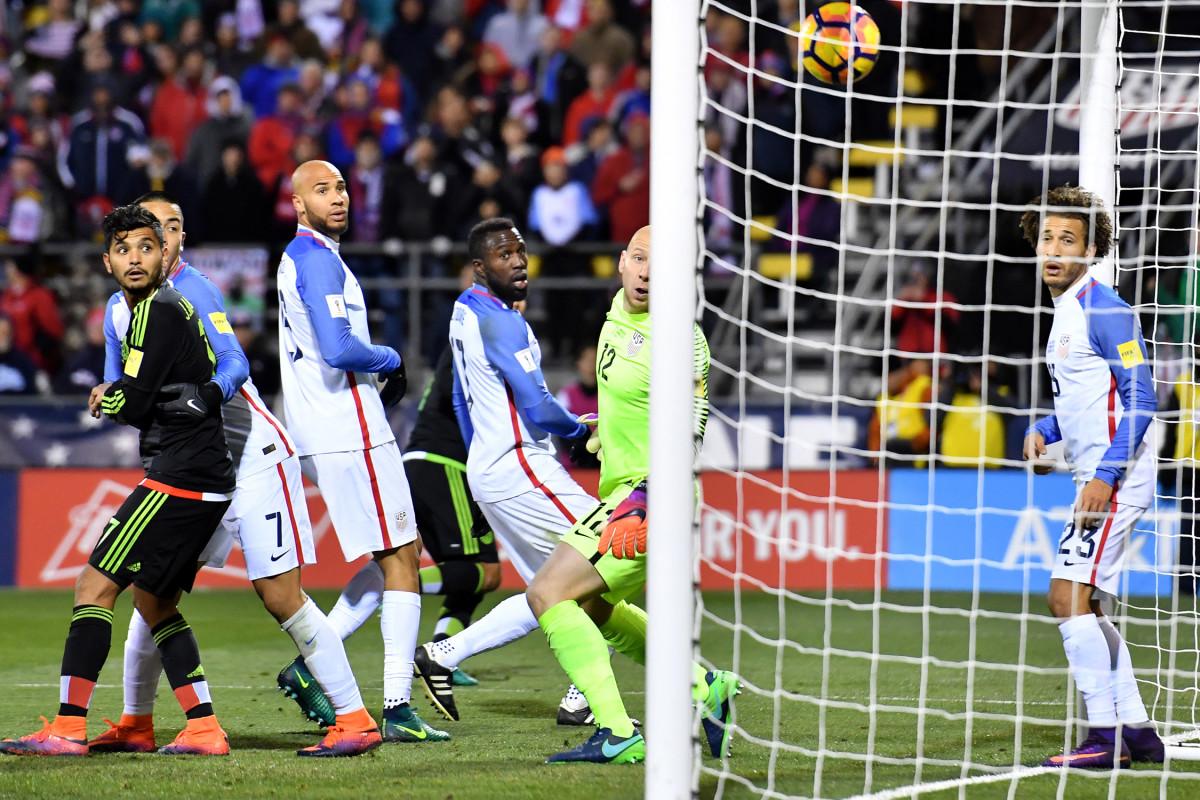
USA and Mexico players watch Rafa Marquez's 89th-minute header find the net in a famous World Cup qualifying win in Columbus for El Tri.
October 10, 2015 – Mexico 3, USA 2 (AET)
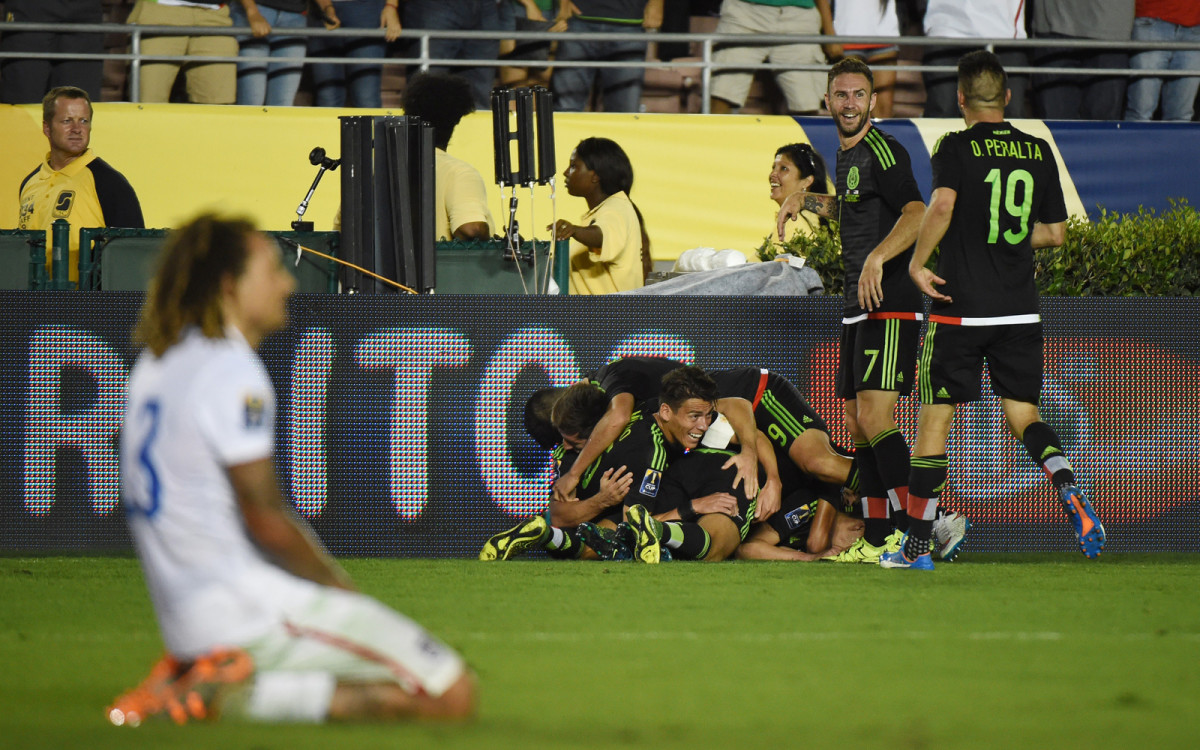
Jermaine Jones falls to his knees in disappointment as Mexico celebrates after Paul Aguilar's sensational volley in extra time captured the CONCACAF Cup for El Tri and sends the U.S. rival to the 2017 FIFA Confederations Cup.
April 15, 2015 — USA 2, Mexico 0
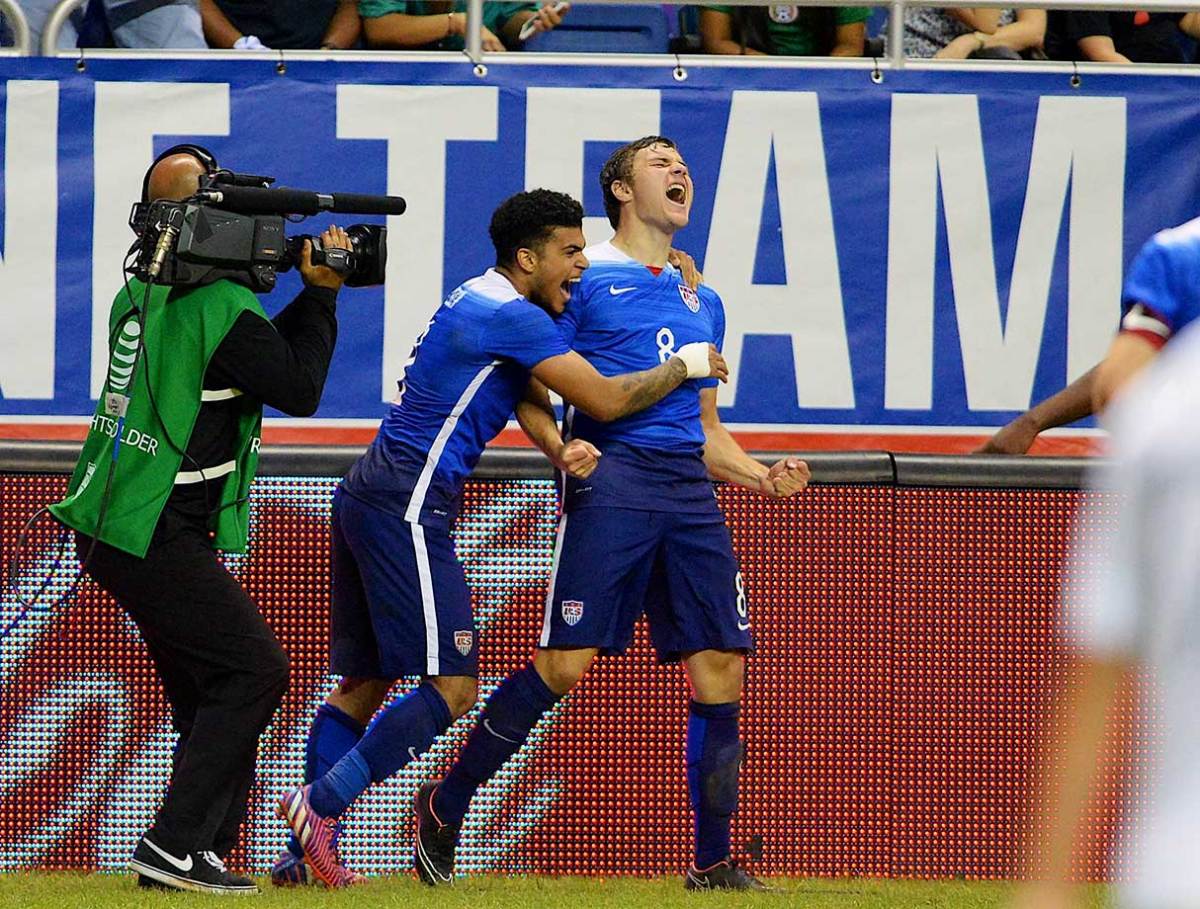
Stanford University's Jordan Morris marked his first senior national team start with his first international goal, sparking the USA in another 2-0 triumph over Mexico, this one at the Alamodome in San Antonio.
September 10, 2013 — USA 2, Mexico 0
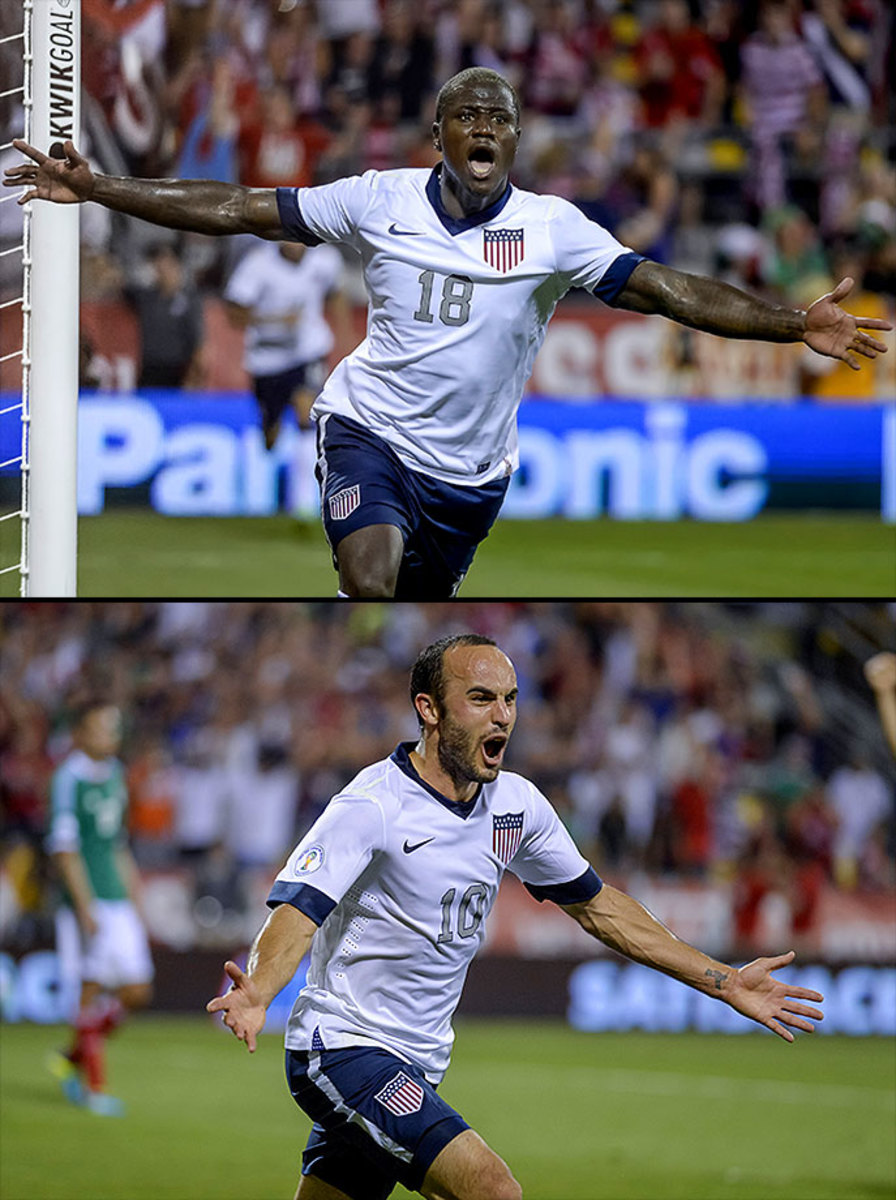
Eddie Johnson and Landon Donovan scored second-half goals to beat El Tri by the same score for the fourth consecutive qualifier in Columbus, Ohio.
March 26, 2013 — USA 0, Mexico 0
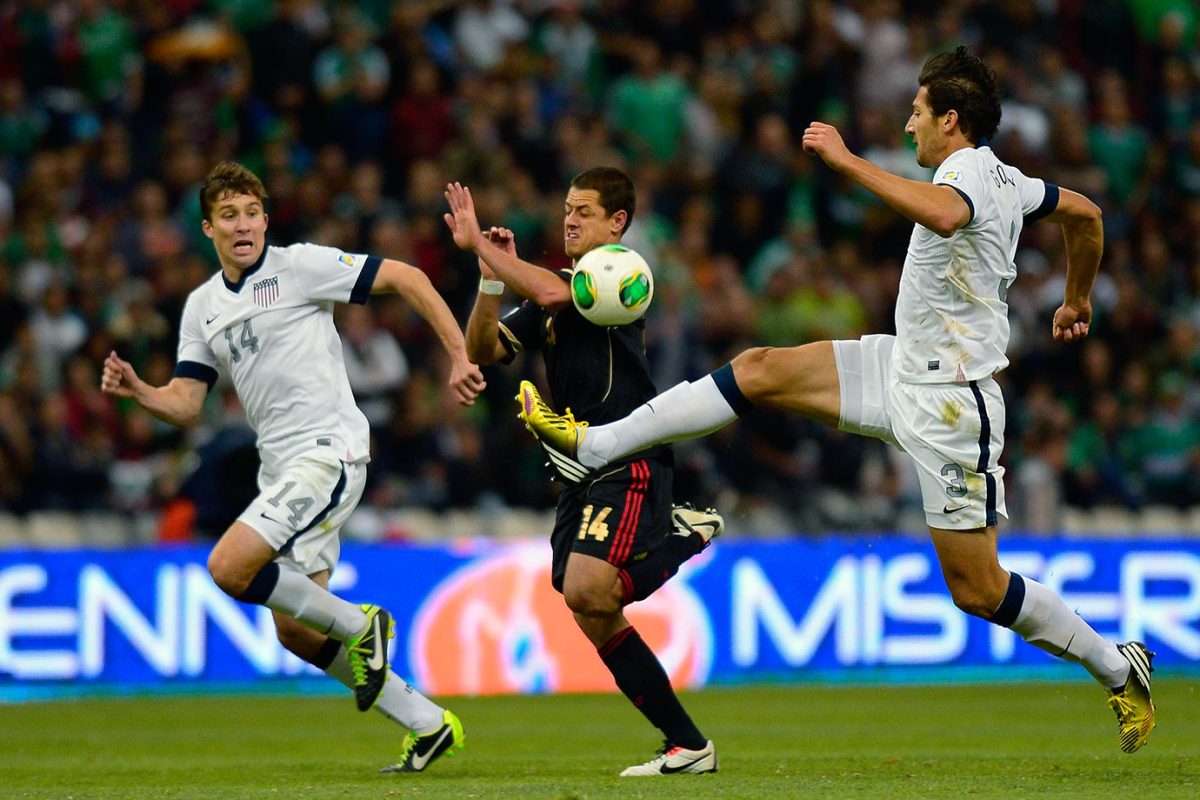
Clint Dempsey captained the U.S. to a 0-0 draw at Estadio Azteca, the second time ever the Americans registered a point in World Cup qualifying in Mexico (the other a 1997 tie). Defenders Omar Gonzalez and Matt Besler were the stars as Mexico couldn't cash in on several opportunities. The U.S. escaped to remain in second place in CONCACAF qualifying.
August 15, 2012 — USA 1, Mexico 0
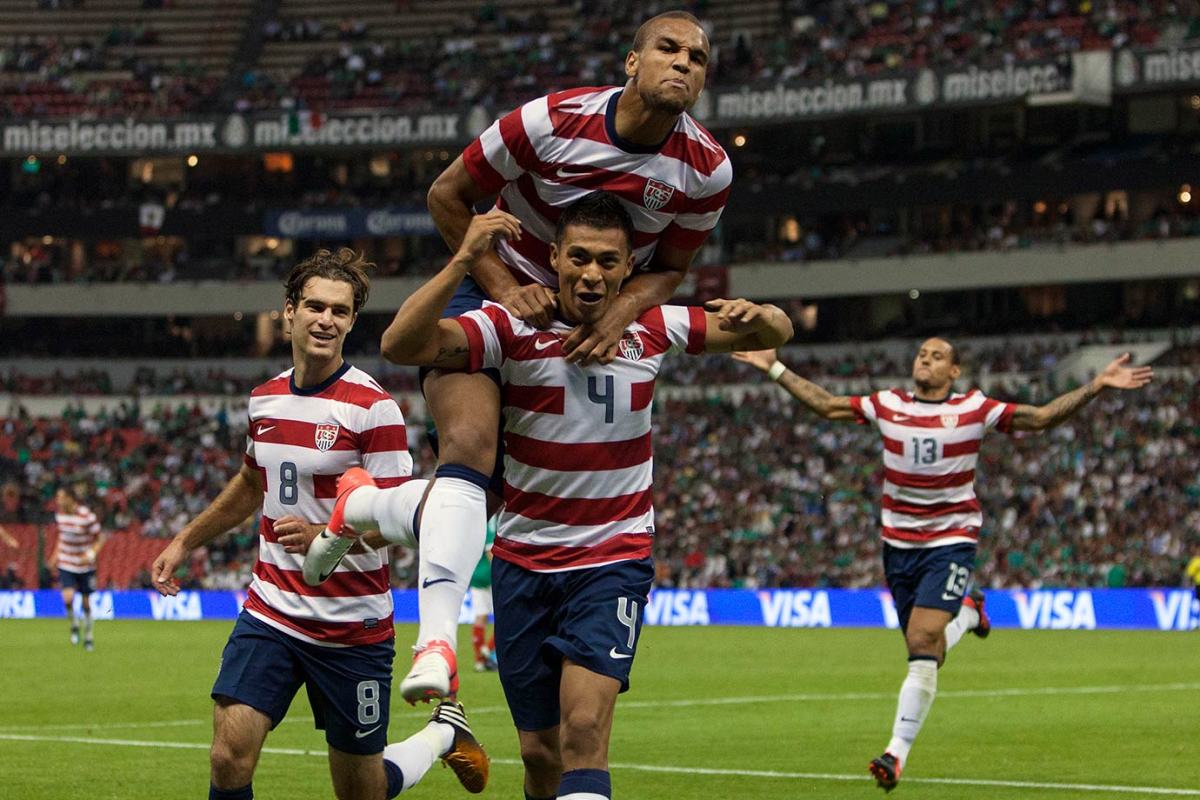
It took 25 attempts, but after this friendly, the United States could finally say that it had won at Mexico City's Azteca Stadium. Despite being outplayed for most of the match, the U.S. won thanks to an 80th-minute goal from Michael Orozco Fiscal — the first international goal of his career.
August 10, 2011 — USA 1, Mexico 1
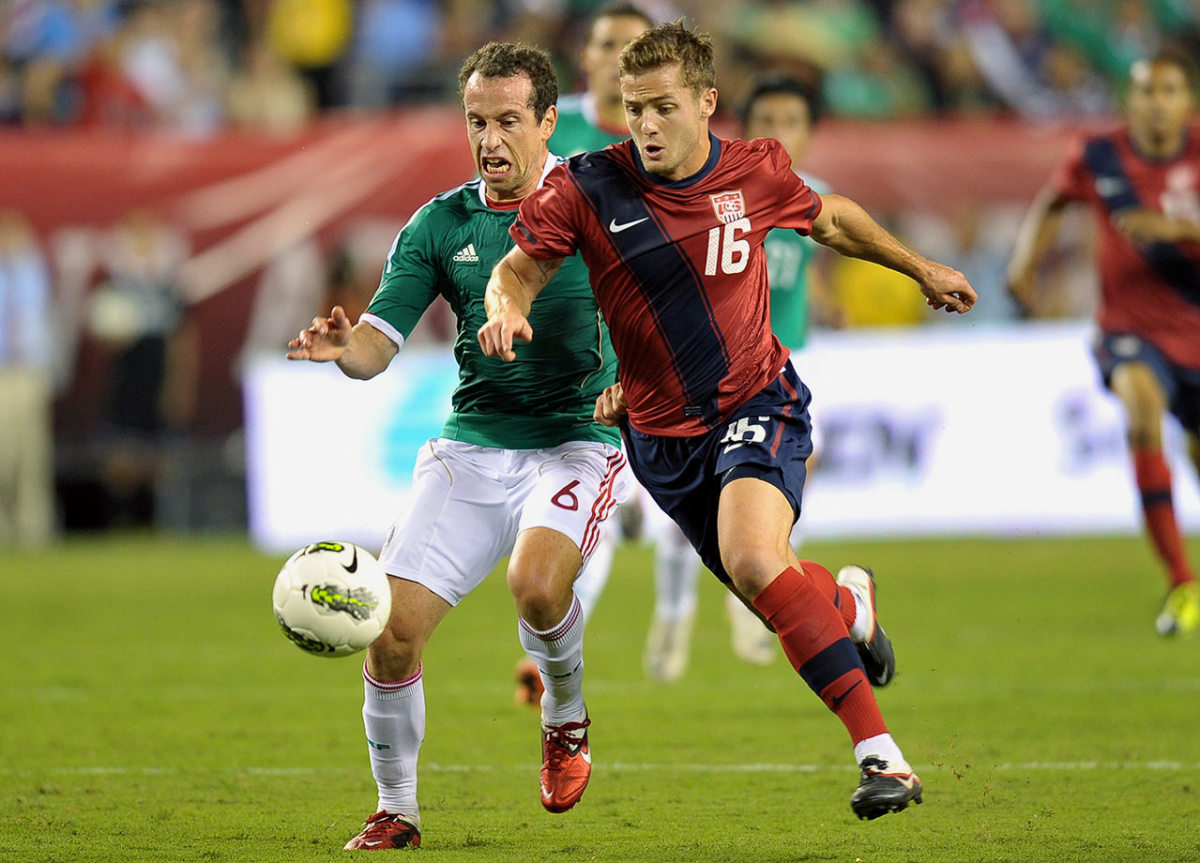
Head coach Jurgen Klinsmann's U.S. debut got off to a rough start, as the Americans trailed Mexico, 1-0 after an uninspired first half in Philadelphia. The U.S. showed more verve after halftime, though, and an impressive display from Brek Shea and a 73rd-minute goal from Robbie Rogers led to a 1-1 draw.
June 25, 2011 — Mexico 4, USA 2
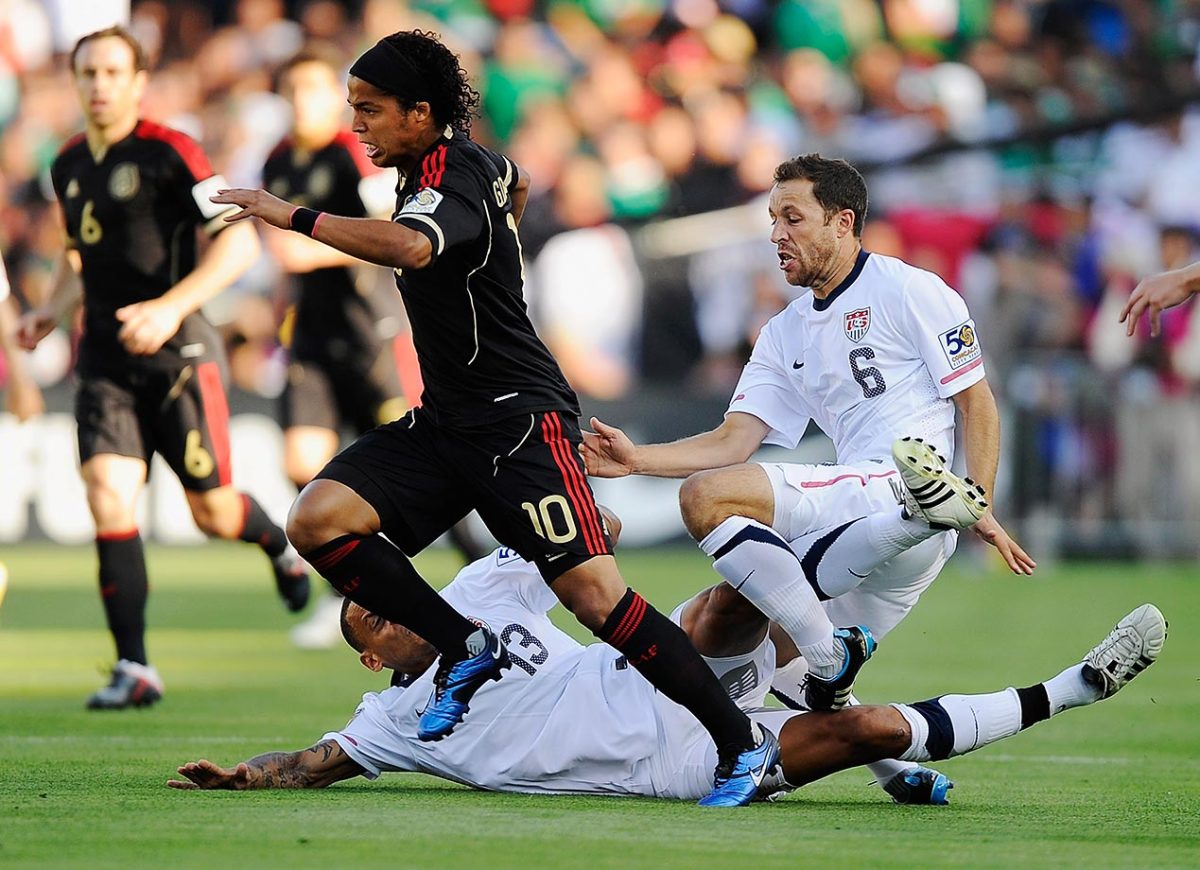
In the Gold Cup final, Mexico captured its second straight title in the battle for CONCACAF bragging rights and secured a berth in the 2013 Confederations Cup. Pablo Barrera scored twice; Giovani Dos Santos and Andres Guardado also had goals. The U.S. was up 2-0 early on Michael Bradley and Landon Donovan goals, but poor defending (partially due to the loss of Steve Cherundolo by injury) doomed the Americans.
August 12, 2009 — Mexico 2, USA 1
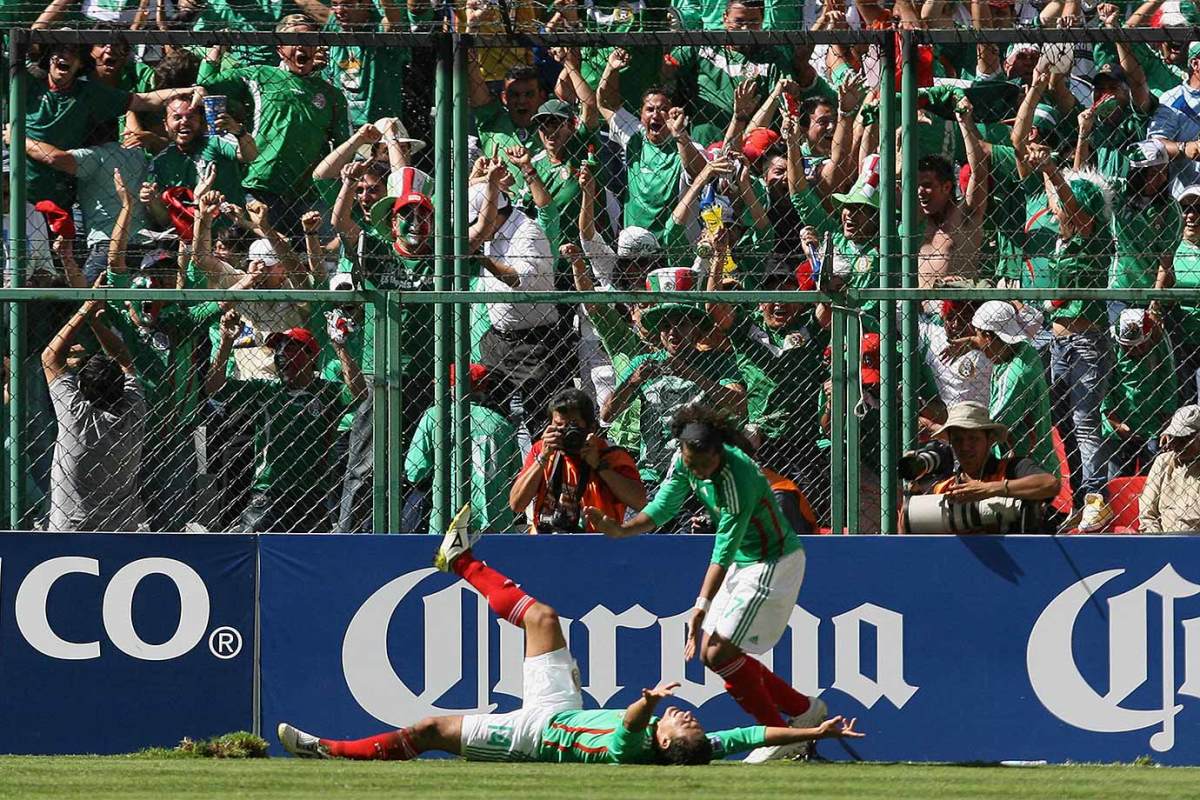
The U.S. took its first-ever lead at Azteca Stadium, but went on to lose 2-1 in what was a critical World Cup qualifier for Mexico. The win changed the tide for the then-struggling Mexican squad, as it went on to go 3-0-1 in its next four matches to earn a trip to South Africa. The U.S. still went on to finish first in CONCACAF qualification.
July 26, 2009 — Mexico 5, USA 0
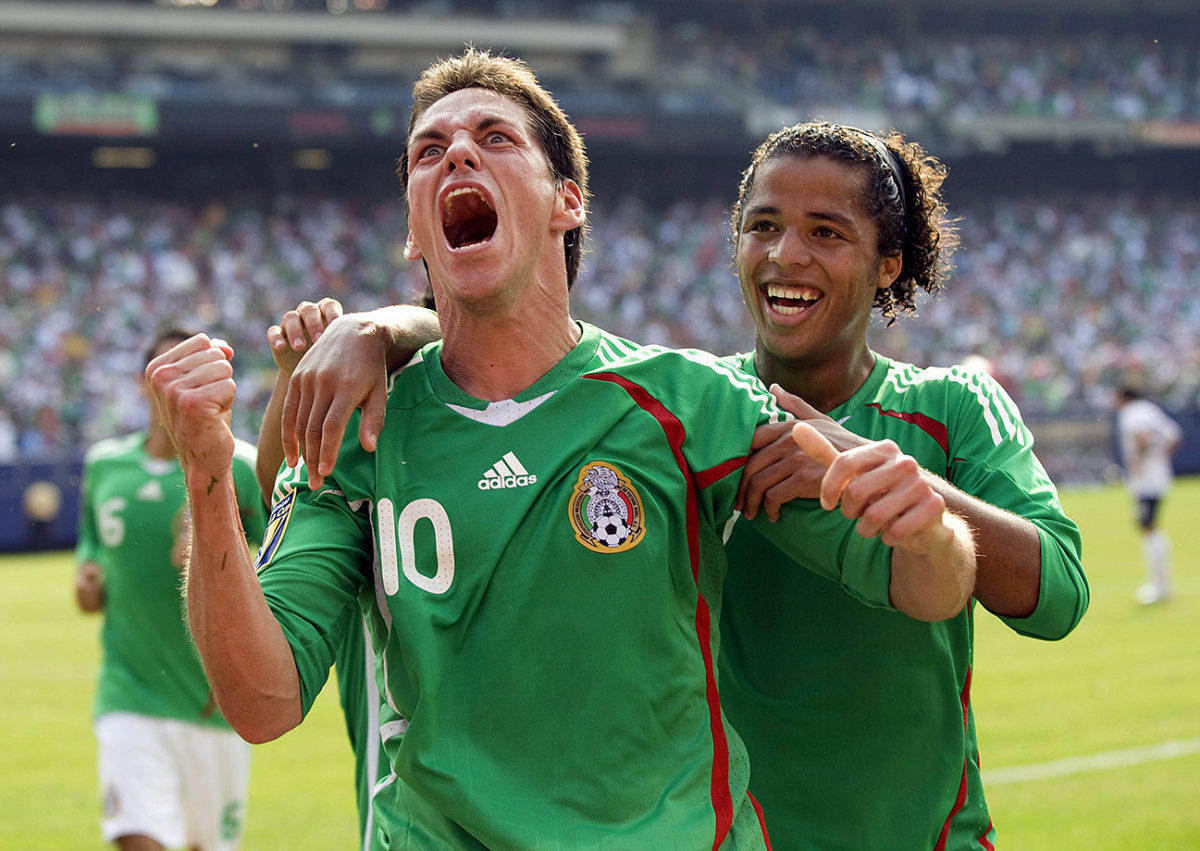
Mexico put an emphatic end to the Americans' 9-0-2 home streak against "El Tri." The Mexicans took the Gold Cup from the two-time defending champion, with five different players scoring goals in the second half at Giants Stadium.
February 11, 2009 — USA 2, Mexico 0
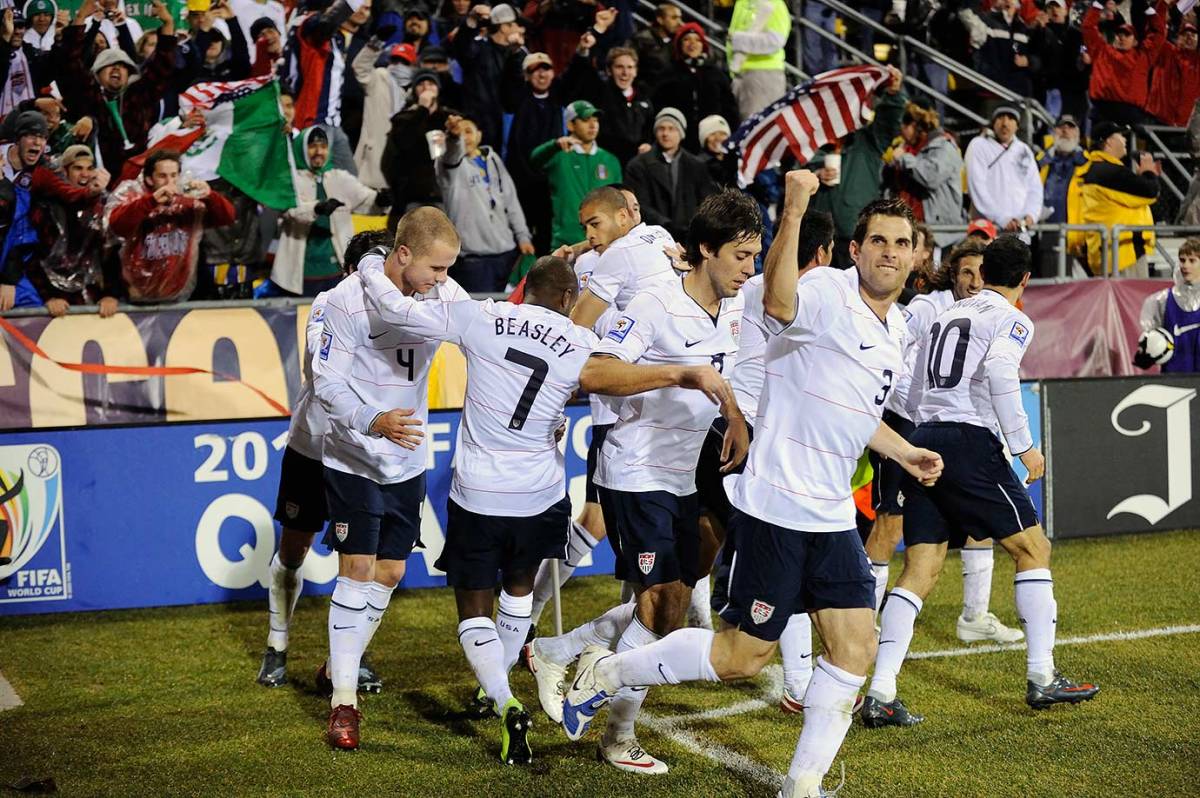
Two goals from Michael Bradley gave the U.S. another home victory over Mexico. It marked the eleventh consecutive time that the Americans had gone unbeaten against Mexico when playing on U.S. soil.
June 24, 2007 — USA 2, Mexico 1
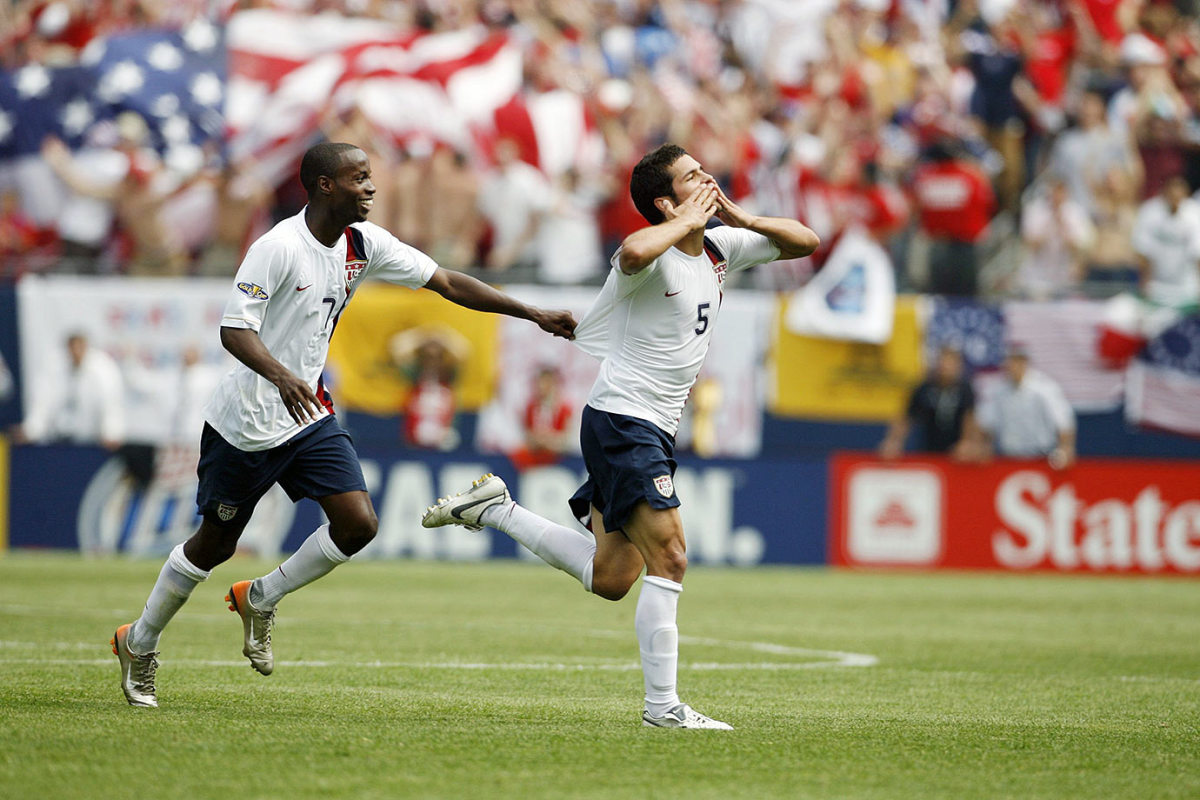
Down 1-0, second-half goals from Landon Donovan and Benny Feilhaber gave the U.S. the victory in the 2007 Gold Cup finals. The win earned the Americans a spot in the 2009 Confederations Cup, where they achieved their famous upset over Spain.
September 3, 2005 — USA 2, Mexico 0
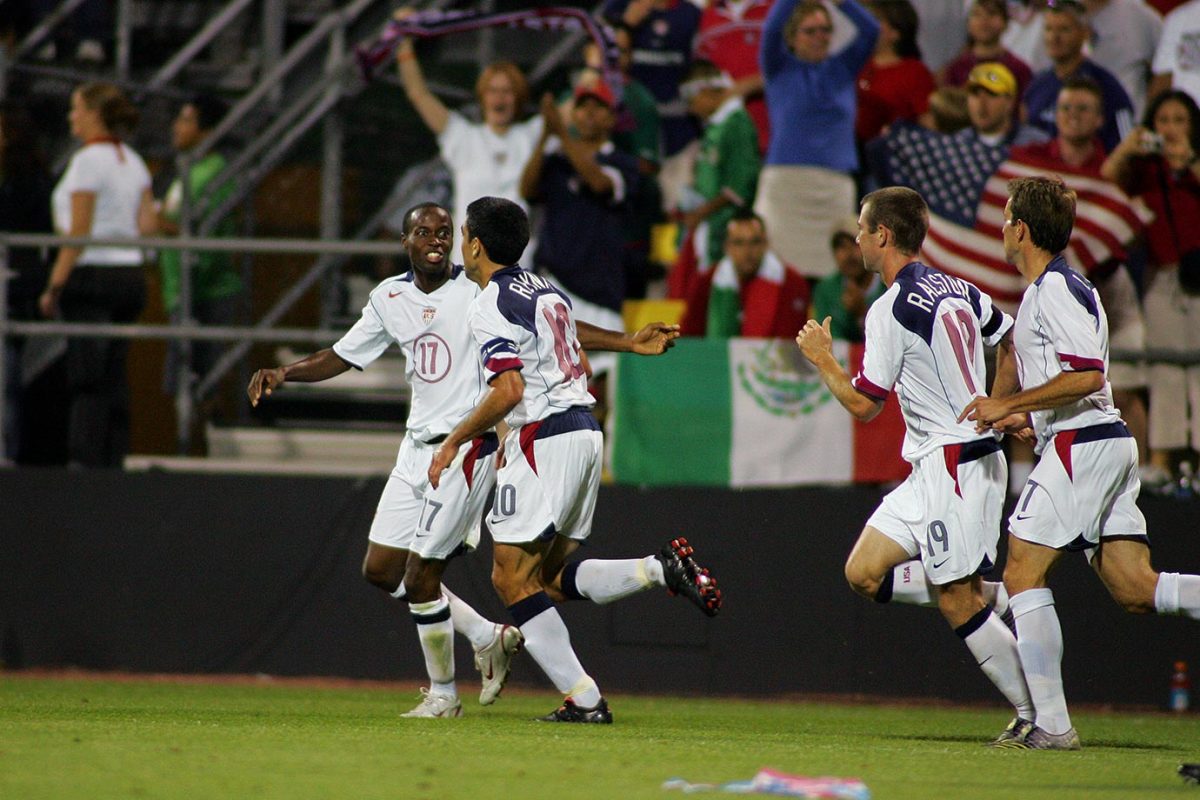
A 2-0 victory over "El Tri" clinched a spot in the 2006 World Cup, with goals coming from Steve Ralston and DaMarcus Beasley.
May 8, 2003 — USA 0, Mexico 0
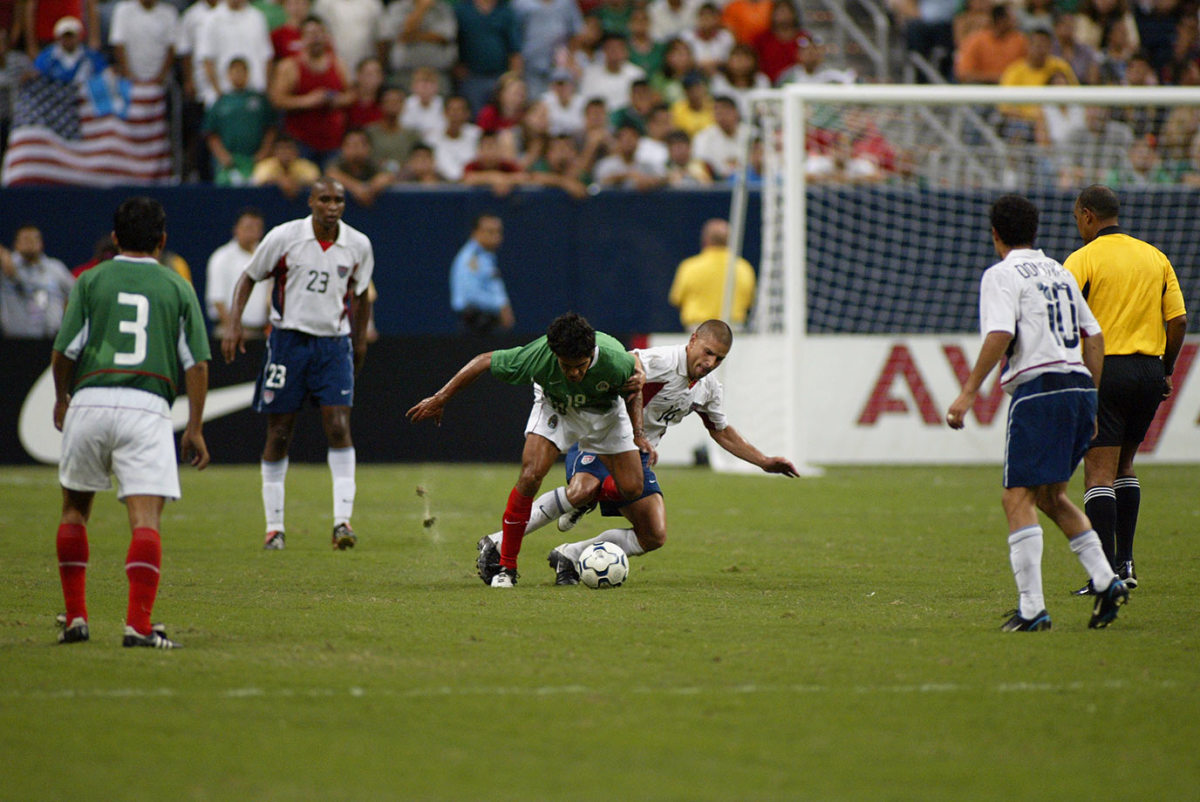
In their first meeting since the 2002 World Cup, an all-MLS squad of Americans played Mexico to a 0-0 draw in front of more than 69,000 people in Houston.
June 17, 2002 — USA 2, Mexico 0
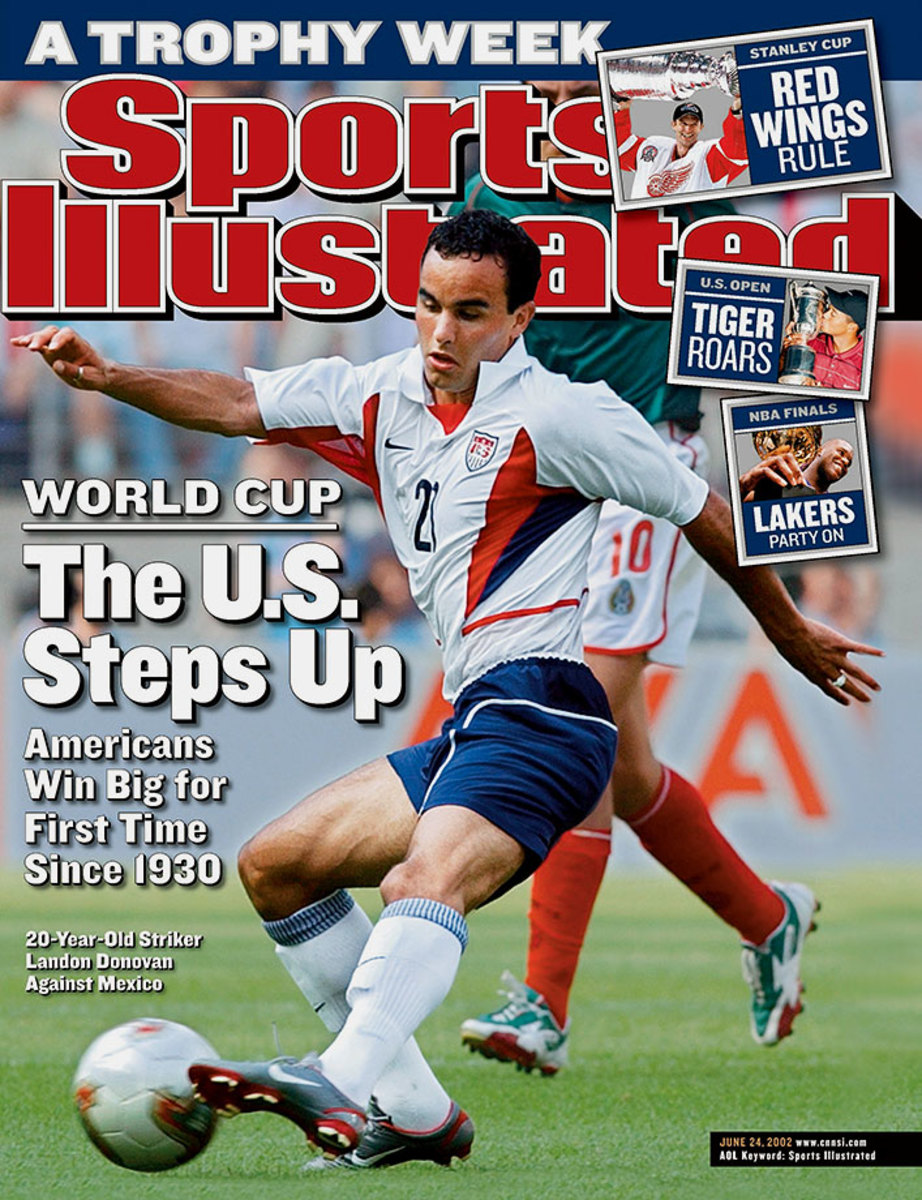
Arguably the biggest win in U.S. soccer team history came against its archrivals at the 2002 World Cup. Brian McBride and Landon Donovan gave the Americans a 2-0 victory in South Korea to send their team to the quarterfinals. It is the furthest stage the team has reached in the World Cup since 1930.
July 1, 2001 — Mexico 1, USA 0
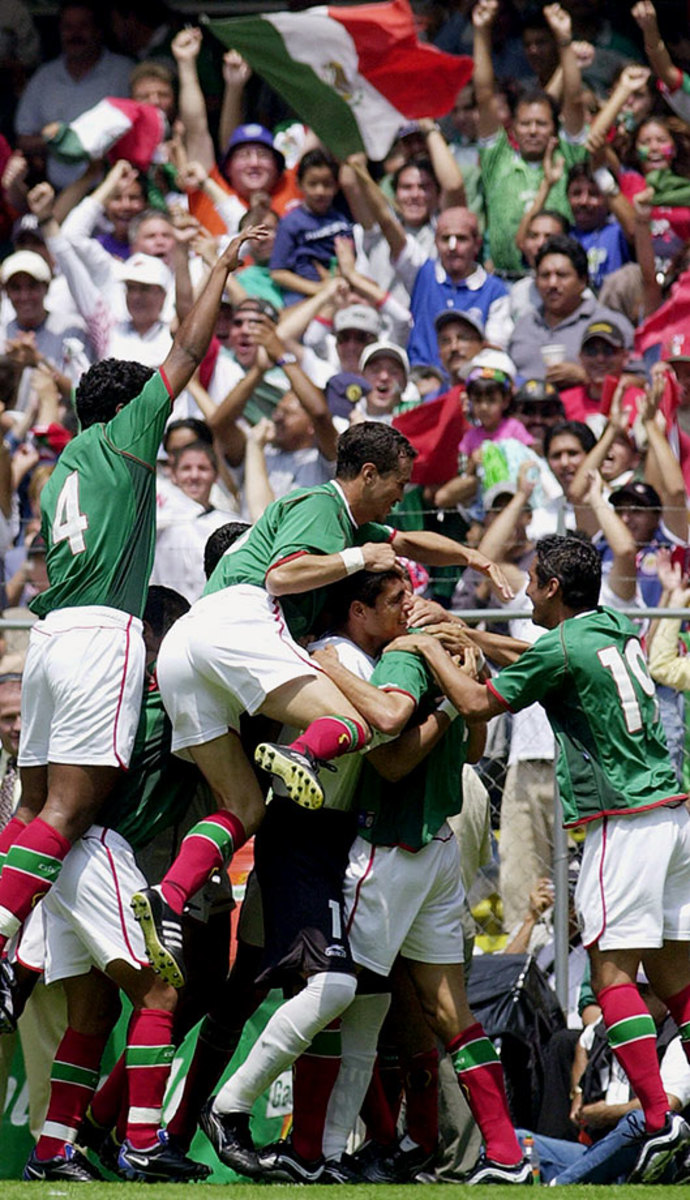
Needing a win to stay in contention for the 2002 World Cup, the Mexicans won 1-0 at Azteca Stadium, making their record 21-0-1 when hosting the Americans.
February 28, 2001 — USA 2, Mexico 0
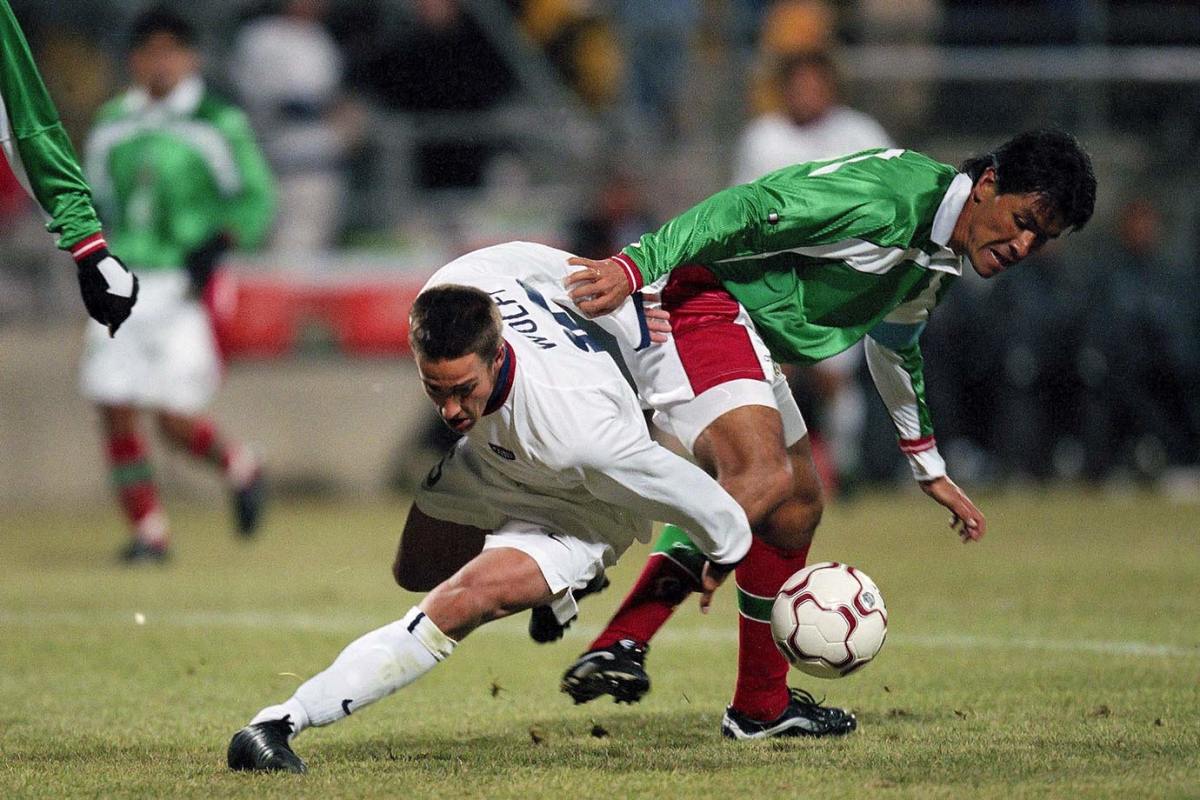
For the first time ever, the Americans won their third consecutive game against Mexico. The victory came in the World Cup qualifying finals and was held in Columbus, Ohio.
August 1, 1999 — Mexico 1, USA 0
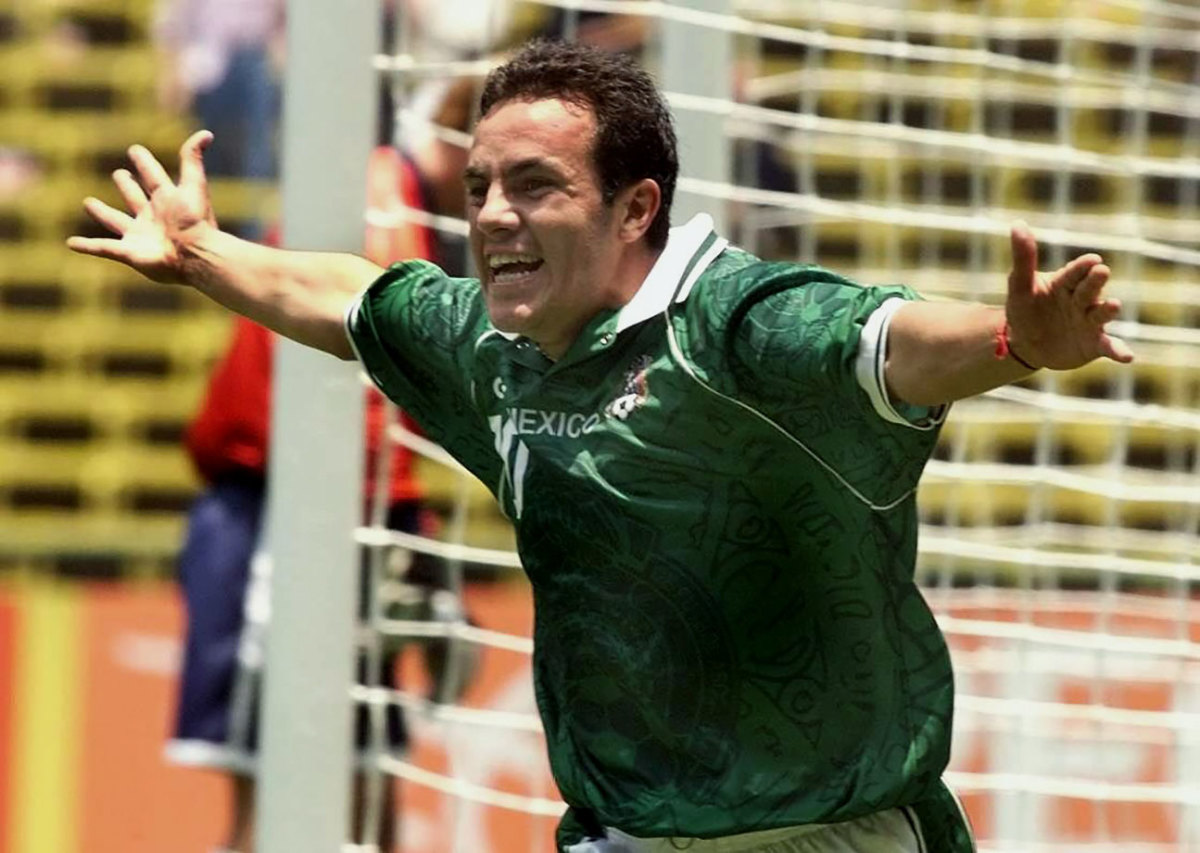
Cuauhtemoc Blanco's goal in extra time eliminated the U.S. in the semifinals of the 1999 Mexico City Confederations Cup. The win capped off a long tradition of Mexican dominance over the American side, a streak that shortly thereafter ended, as the Americans won the next three matches against their rivals.
July 17, 1995 — USA 0, Mexico 0
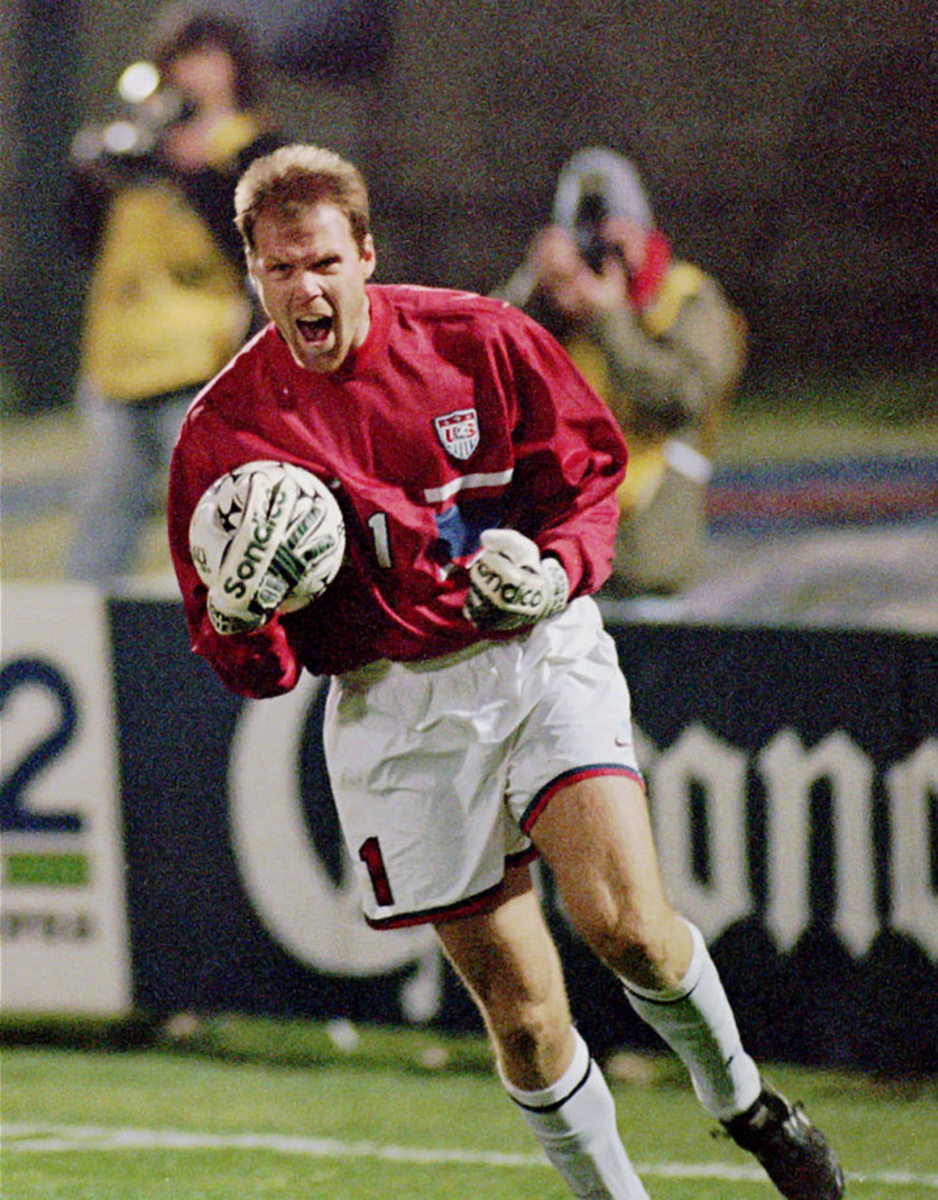
The USA outlasted Mexico in a penalty shootout to reach the semifinals of the 1995 Copa America. After a 0-0 draw, goalkeeper Brad Friedel was the hero in PKs, making two saves. The U.S. made all four of its attempts and advanced.
Yes, it was cold. And yes, the crowd was against them. But the pictures in Claudio Suárez’s head when asked to recall the 2001 loss are of a couple of mistakes. He is “El Emperador”, the former El Tri defender and the most capped player in program history. Now an analyst for Fox Deportes, the 47-year-old Suárez told SI.com through an interpreter that former and current Mexican players certainly “have experienced worse conditions” than those encountered in Columbus.
“The weather and not having our fan base there is important but I don’t feel it’s what has given the U.S. the advantage. It’s really been the Mexico team, when I was there, had other issues,” he said. “There were a lot of issues happening [in 2001]. [Manager] Enrique Meza lost his job because of it. In that game specifically, I made a mistake. [Goalkeeper Jorge] Campos made a mistake. We both made mistakes and we lost the match. But the triumph the U.S. had fuels the players and gave them more confidence.”
The Dos A Cero foundation: Josh Wolff and the goal that kick-started it all
Suárez, beaten by Josh Wolff along the touchline during the build-up to the Americans’ second goal, also admitted that Mexico’s players underestimated the quality of their opponents in 2001. He said he fears that uncertainty surrounding Osorio’s tactics, lineup changes and the response to this summer’s heavy Copa América Centenario defeat to Chile may leave Mexico vulnerable again. It’s about the moment. Another loss in Columbus won’t be because of the cold—after all, half Osorio’s team now plays in Europe—or the crowd. It’ll be because Mexico didn’t rise to the occasion.
“I don’t think it has to do with a curse or a superstition,” he said. “Knowing some of the players that are currently playing, I don’t think in their minds they’re thinking about a curse. There have been other circumstances that have not allowed the Mexican team to win in Columbus. It’s really about the mentality of the players, and while we do have to recognize we’ve lost every game there, it’s been because our mentality wasn’t what it needed to be.”
So enter Ibarrondo and Osorio, a coach whose position may be tenuous but whose outlook remains positive. He believes the tinkering and player rotation that some criticize actually is helping forge the required mentality.
“The reasons they play in Columbus are obvious, but that's different. It's not about soccer. It’s a test of character for the team,” the manager told ESPN. “I think that if something characterizes the Mexican player, it's his competitiveness—his competitive spirit. I think that's why we're still getting better because of the internal competition for places in the team. With these two things in mind, I think we've got a great chance to compete with them in Columbus.”
One fan's hopes to mend fences instead of build walls at USA vs. Mexico
Friday is a new day. It’ll be cold—easily the coldest Columbus qualifier since the first one. The U.S. seems confident and in a good frame of mind. The question confronting Mexico is whether it can step onto the Mapfre Stadium field without picturing past misfortune.
"I don't remember anything,” Rafa Márquez told reporters this week.
The ageless defender has played in three of the four losses and was ejected from the 2009 dos-a-cero
“The good thing about football is that it gives you revenge," Marquez said. "We've not done well here and this is a new opportunity to trust in the group and the coach and get three important points.”
Midfielder Marco Fabián, who plays for Eintracht Frankfurt, told Récord that the four 2-0 losses are “a statistic.”
He said, “You have to leave behind everything that is past and on the field, to do what we know—that is to play football and to demonstrate that here or on any field we have to be superior … Personally, it never goes through my mind and knowing my colleagues, I don’t think it goes through theirs either. The past happened and now it’s another story.”
Frankie Hejduk recalls one of USA vs. Mexico's infamous incidents: The Slap
Easier said than done. The Americans believe in Columbus. They feel fueled by the fans and the history.
“There’s an aura in Columbus when we play Mexico,” U.S. captain Michael Bradley said. “They feel that. We certainly feel that, and we have to continue using that to our advantage.”
On Friday, Mexico will discover whether it’s finally found the mettle required.
“The thing now for Mexico is they have to change the mentality and change in the head. ‘OK, this is another game. This is another history. This is another time. We can change this history,’” Pardo said. “We have to think positive. Of course, it’s a difficult game because it’s a qualifier. It’s a Clásico. But you have to say that this is an opportunity to win. Now living in the U.S., I see the mentality of Americans that every time it is possible. ‘Yes, we believe we can.’ You can put it in your mind. ‘Yes I can.’ You have to believe.”
